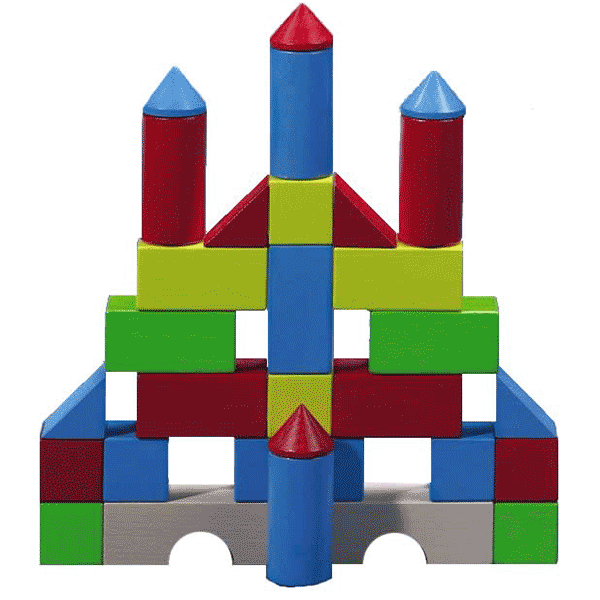Colored Building Blocks Set (30-pieces)
Details
This is a classic set of building blocks with quality construction and bright colors. Colored blocks help bring points of emphasis to building. This 30-piece set is flexible for design because of its mixed shapes: squares, rectangles, cylinders, triangles, arches and more. Blocks, a favorite childhood toy, are foundational for STEM learning due to engineering, mathematical, spatial reasoning, creative building, and experimentation with simple laws of science.
Proudly made in Germany, these are perfect for time spent one-on-one with parents, social play or imaginative time alone.
Eco-Friendly Toy
Size: 11" x 9" x 8"
Age Range: 2 years +




Developmental Value
Why do so many classrooms have a large set of blocks? Because blocks are one of the most flexible toys that provide learning for underlying fundamental brain power. Many consider them to be the first actual set for STEM learning.
When considering a build of any sort, children initiate planning and problem-solving skills. Problem-solving activity develops cross-brain thinking skills. Effective problem solving requires a mixture of both logic (left-brain activity) and creative (right-brain activity) thinking. Good problem solvers switch from one set of skills to the other. Problem-solving is not always easy but becomes more natural with practice.
-
Logic (analytic) thinking develops through ordering the pieces, comparing them, contrasting them, evaluating them and selecting the correct piece. The child must select the best alternative from the options available by narrowing down the range of possibilities.
-
Creative thinking is developed when a piece doesn't fit because the child must consider a broader set of solving options such as manipulating the piece, flipping the piece, considering the alphabet order, or solving surrounding pieces.
When considering a building challenge, children draw on imagination or mental image forming in the mind. Working with friends, a child may build something another child imagines, helping build something she never considered.
There are strong mathematical fundamentals at play such as length, measurement, comparison, number, estimation, symmetry, and balance.
There are strong science and engineering fundamentals at play when children test hypotheses and build scientific reasoning in construction.
Social skills are bolstered as children learn to share materials, develop new friendships, take turns, stay focused, cooperate with others, all leading to the development of self-esteem.



